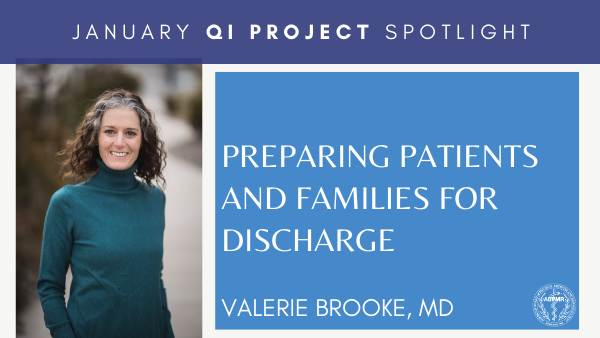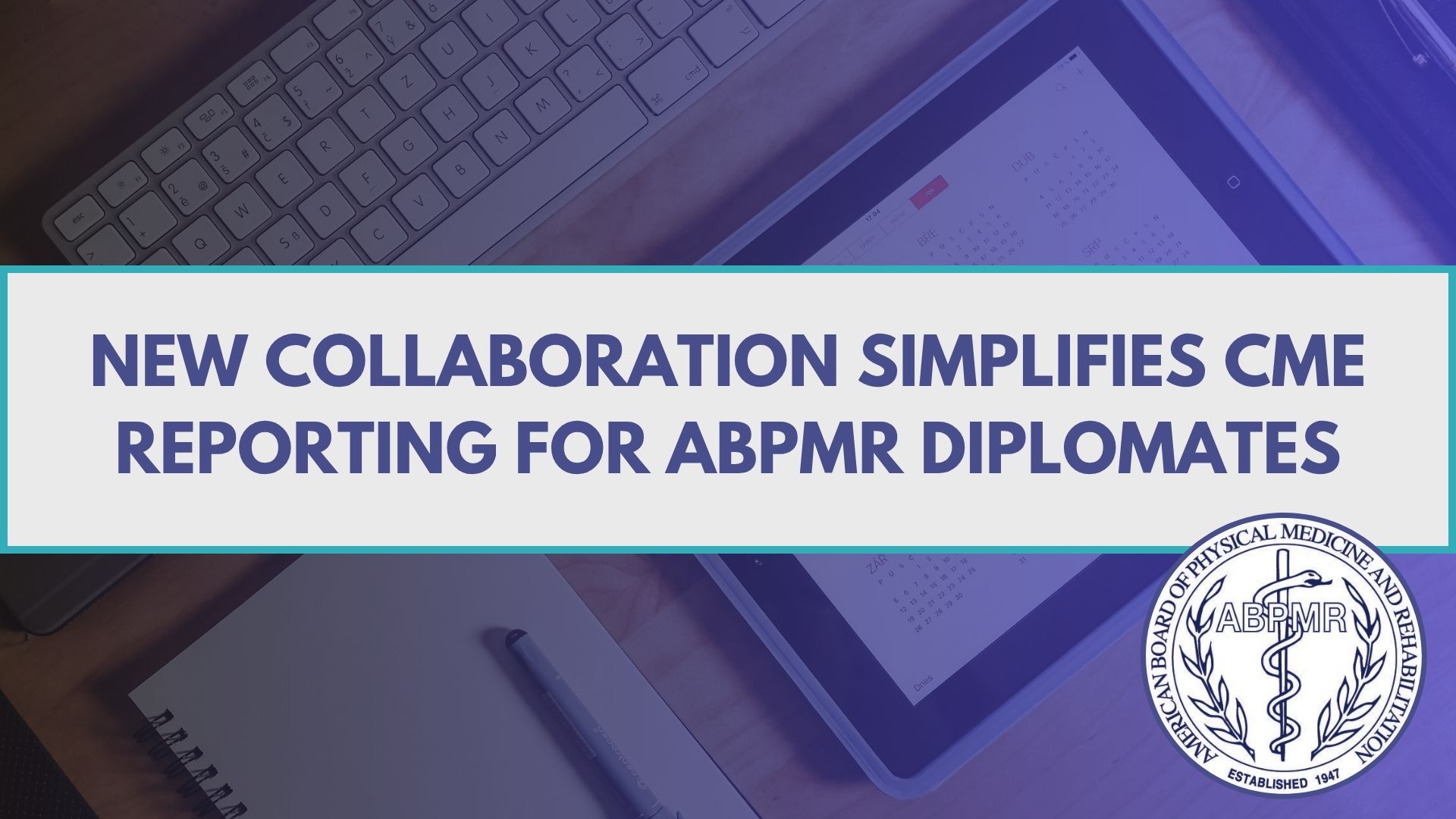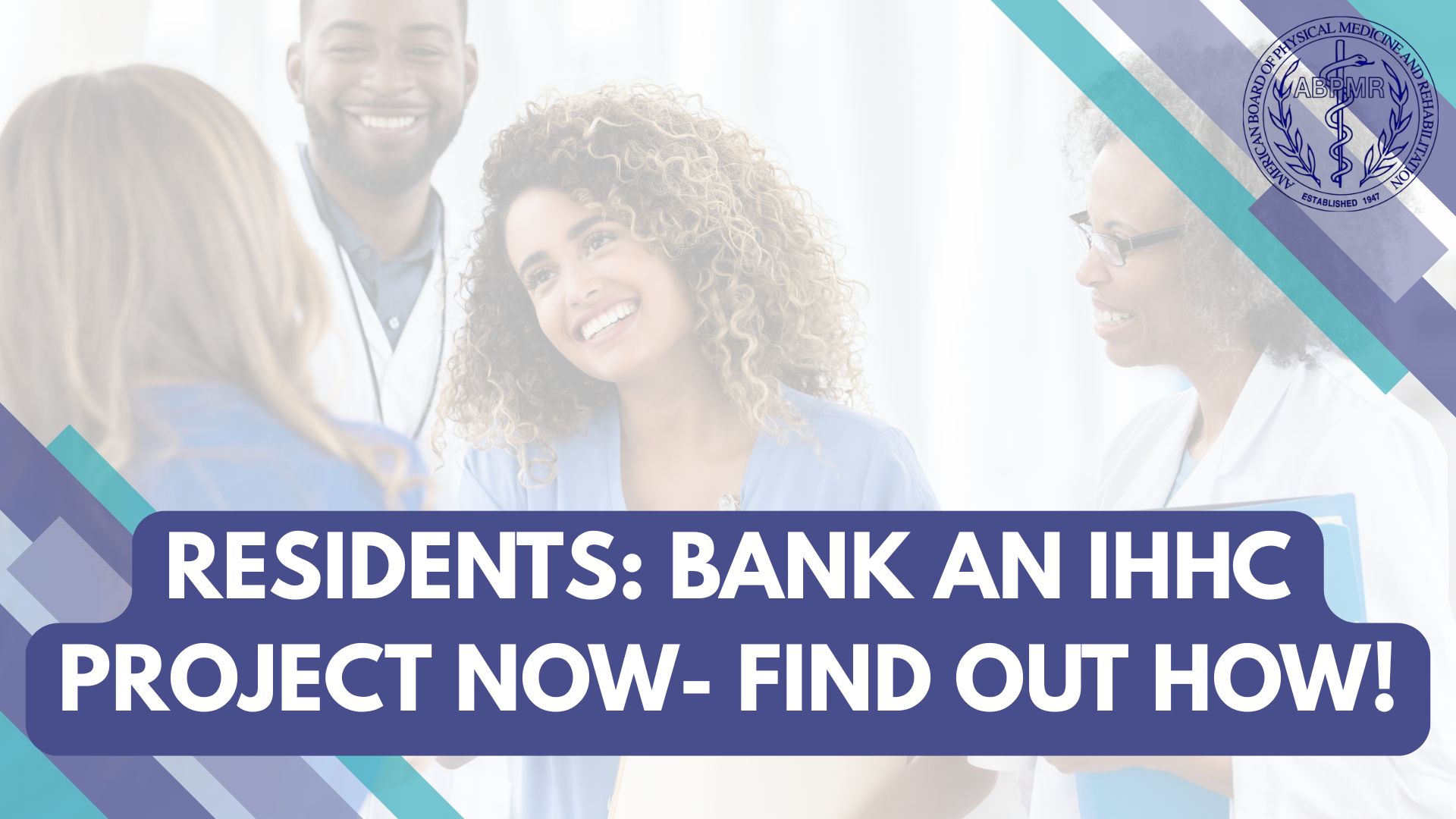CC
QI Spotlight: Preparing Patients and Families for Discharge

The January QI Project feature was submitted by Valerie Brooke, MD. Dr. Brooke is currently Stroke Rehabilitation Program Director at Renown Health in Reno, NV. She also runs a blog about her life as a physiatrist and her wellness journey.
For her project, Dr. Brooke focused on improving the process of patient discharge to help patients and their families feel comfortable transitioning back to their homes and communities after their rehabilitation stay. To stay organized and ensure all details in a patient discharge plan were addressed, Dr. Brooke and her team created "The Passport" for patients and their treatment teams. After several months of using the Passport, patient satisfaction scores increased; to continue this success, Dr. Brooke and her team are still using and improving the Passport.
Thank you for submitting your project, Dr. Brooke!
The QI Project Spotlight (formerly the PIP Spotlight) is a periodic feature on the ABPMR News Center to highlight exemplary Quality Improvement projects submitted by your fellow diplomates (or residents) for continuing certification (CC) credit. Diplomates can use the QI Project Spotlight as a tool to plan their own QIs or as a way to connect with other diplomates doing similar work.

What is the problem you are trying to solve?
Patients and their family members often feel overwhelmed and unprepared for their discharge back home and to their communities, and do not feel as if they had enough training for their loved ones care at home.
What data (objective measurements) do you have that supports this as a problem?
Patient satisfaction scores from July 2019-December 2019 with a N=140. Score 0-100% satisfied, on three specific discharge questions:
- Staff explained discharge plans - 89.2%
- Training given re: home care - 86.2%
- Discharge overall - 87.9%
What is your opportunity statement? State the goal you hope to achieve.
By developing an individual passport of items to be completed for each patient prior to discharge (a small book of checklists for each discipline, individualized to each patient), the hope is that patients and their families will feel more prepared and ready for discharge. If effective, this should show as improvement in the discharge patient satisfaction scores.
What is the underlying cause of the performance/quality problem?
So many staff persons are involved with the patient's care throughout their rehabilitation stay with information coming from multiple sources. It can be difficult to remember what goals need to be completed in order for a patient to be ready for discharge. Patient's may also have cognitive impairments affecting their memory or cognition, so they do not recall that information regarding the discharge plan was provided. Family members are not with the patient at all times, so they may also miss crucial trainings and explanations about the discharge plan.

What change(s) did you implement?
We created a small book called The Passport, which is given to each patient on admission and travels with them in their wheelchair to all therapies. The book is divided into sections for each discipline (PT, OT, SLP, Rec therapy, RN, Case management) with spaces for patient specific goals, the training that needs to be completed, and a back section for patient comments/areas of improvement. Each day/week the patient checks off with their treatment team the individual goals that the patient needs to meet in order to discharge home safely. These goals are reviewed with the patient and family prior to discharge, the data is collected, and the Passport is given to the patient to take home as evidence of their recovery and functional improvement.

Did you achieve your goal or target from your opportunity statement? What data do you have to support your conclusion?
Yes. On follow up patient satisfaction scores, from July 2020 to March 2021 (in order to get similar N=140), Score 0-100% satisfaction, on three discharge questions:
- Staff explained discharge plans - 89.2% --> improved to 90.25%
- Training given re: home care - 86.2% --> improved to 88.53%
- Discharge overall - 87.9% --> improved to 88.54%

Will you continue with the changes you have implemented?
While we did meet the goals of our project, due to COVID restrictions (we had no visitors from Nov 2020 to February 2021), I believe we would have scored higher as families were not as involved in the discharge planning process until the day of discharge when we had two hours of compressed family training. We also weren't as stringent about completing the passport due to staffing shortages associated with the pandemic. To maintain this success, we are continuing with the Passports, collecting more data (including which disciplines are not always completing the passport items), and making changes to the Passport that will better meet the need of patients feeling prepared and families trained for discharge.



